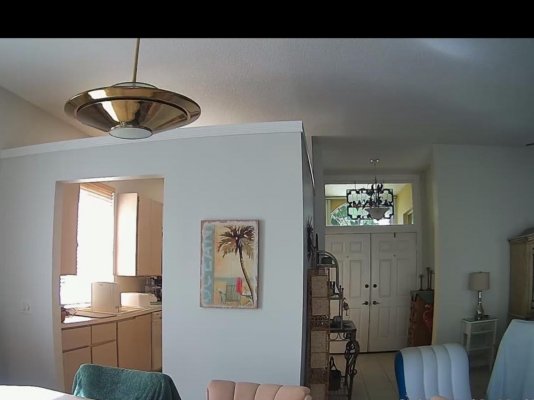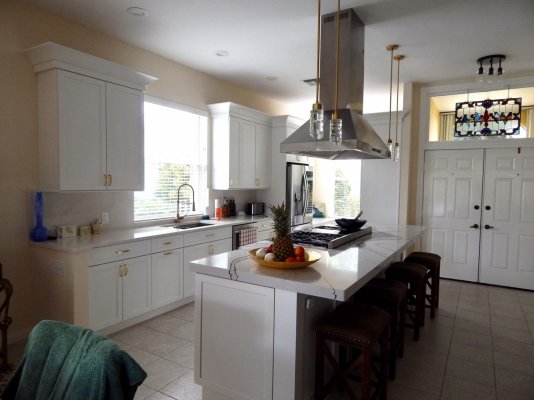skyking1
Thinks s/he gets paid by the post
Thank you, @Surewhitey
I did our kitchen and home remodel myself, with the exception of the doors and drawer faces.
One thing I did that I would not change is drawers down below. Everything is a drawer below the countertop with the exception of a pair of doors and a huge double level lazy susan at the end of a peninsula.
I wanted to avoid those 'caves' down low that are not accessible. It worked out well. We have huge pan drawers next to the stove, the undersink recycle bins and trash are drawers.
I did our kitchen and home remodel myself, with the exception of the doors and drawer faces.
One thing I did that I would not change is drawers down below. Everything is a drawer below the countertop with the exception of a pair of doors and a huge double level lazy susan at the end of a peninsula.
I wanted to avoid those 'caves' down low that are not accessible. It worked out well. We have huge pan drawers next to the stove, the undersink recycle bins and trash are drawers.



